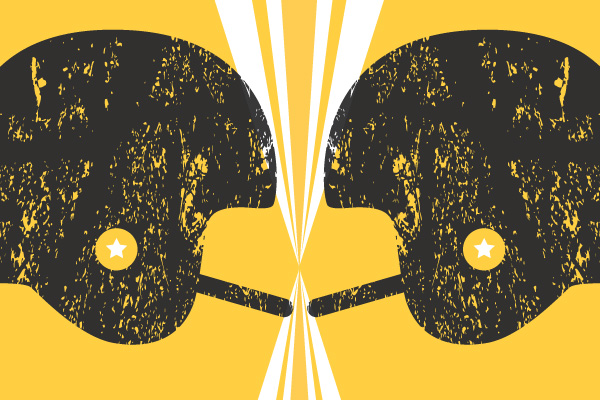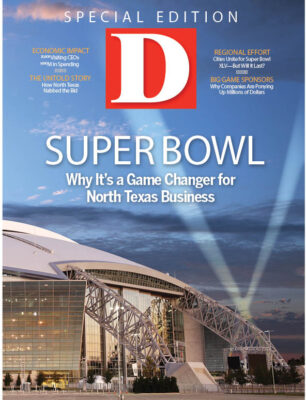No matter what Duane Thomas said, there is nothing like it, the Super Bowl, the ultimate game—for that season—in the NFL, and maybe worldwide.
The game has made guys and broken guys; has made careers and destroyed careers; has landed guys in the Pro Football Hall of Fame or has kept them out; and in the end, win or lose, has affected the post-football lives of many a player.
Sure, former Dallas Cowboys running back Duane Thomas said after the Cowboys finally won their first Super Bowl following the 1971 season (Super Bowl VI, beating Miami, 24-3, on Jan. 16, 1972, at Tulane Stadium in New Orleans):
“If it’s the ultimate game, why are they playing it again next year?”
With Super Bowl XLV less than a year away, the first to be played in North Texas, we thought we just might have the answer for ol’ Duane’s skepticism—a walk down memory lane with some of the greatest football legends North Texas has to offer. Some won big in the ultimate game, some didn’t. All had their lives changed by the experience.
Here, and in parts 2 and 3 of this series on pages 100 and 126, you’ll learn in their own words exactly how.
Tony Dorsett
(Dallas Cowboys, Super Bowls XII, XIII)
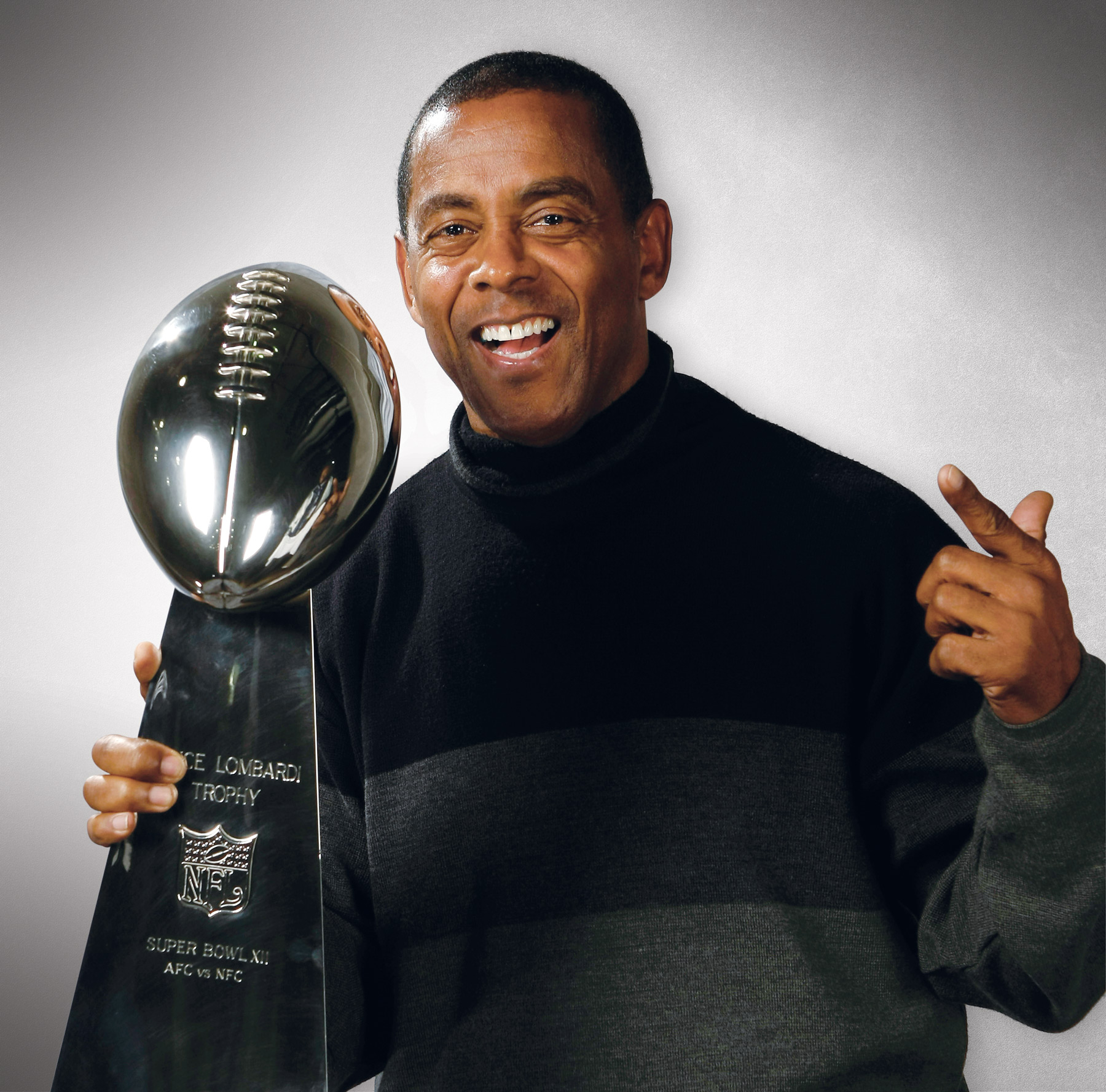
But when it really hit me about being in the Super Bowl is when I watched my son [Anthony] when he was playing for the Tennessee Titans [Super Bowl XXXIV], and when I was down on the sideline. When they started playing the National Anthem, all these thoughts started going through my head. I’m thinking about Jim Brown, Barry Sanders. I’m thinking about Gale Sayers, all these great runners and great players that played in the National Football League that didn’t have a chance to play in the ‘ultimate game.’ But here’s my son, my baby boy, having the opportunity to play in the Super Bowl, and it took all the strength in my body to just stand there; there were tears just flowing and I got real emotional about it. Because it is the biggest thing in sports in this country. It’s a world-wide extravaganza. And not just play in it but to win it—people don’t remember a lot of times the bridesmaid, they remember the world champions, and to be a world champion, man it means a whole lot to me.
I remember the first one [Super Bowl XII] because I scored the first touchdown. I was a rookie, and here I was coming back to the same city [New Orleans] that I previously won a national championship at the University of Pittsburgh back in the same stadium [Superdome], and to score the first touchdown as a rookie, that meant a lot to me. And the second one, I had a chance to go against my hometown team, the Pittsburgh Steelers, and you talk about somebody that was geeked up.
Mel Renfro
(Dallas Cowboys, Super Bowls V, VI, X, XII)
It feels fantastic to win a Super Bowl. I was fortunate enough to go to four of them, and play in eight NFC Championship games. The first [Super Bowl] was most exciting, but we lost it to Baltimore [16-13], but we came back the next year and won it against Miami [24-3]. You hoop and holler after the game and try to let it settle in, and then you realize you’re world champions—world champions—and that will stay with you for about two or three months, then it leaves you because you got to try to do it again.
Tim Brown
(Oakland Raiders, Super Bowl XXXVII)
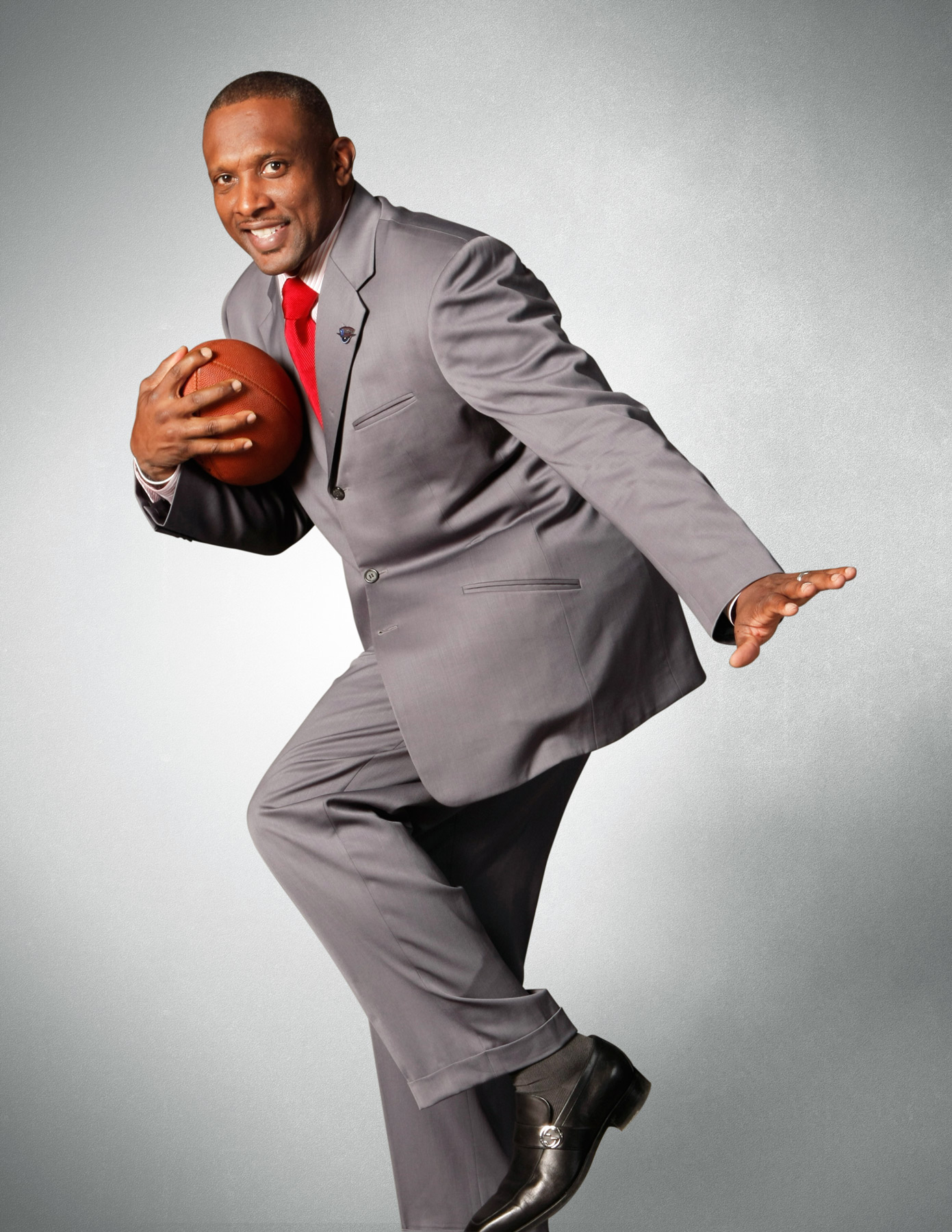
Ed “Too Tall” Jones
(Dallas Cowboys, Super Bowls X, XII, XIII)
The moment I remember was 1977 after we beat the Denver Broncos in the Super Bowl [XII, 27-10]. I was on the bus riding back to the hotel, sitting next to Harvey Martin, and I touched Harvey Martin and said, “Do you realize tomorrow morning when we wake up we are world champions?” And I say that because you can’t really explain what it’s like, that feeling in words. But I do wish every player who had an impact on the game could have experienced that. I talk about guys that I idolized—Deacon Jones with the Rams, the Purple People Eaters’ Carl Eller and all those guys. I shot a commercial not long ago with Dan Dierdorf, who was a lot like Rayfield Wright. And Dan told me, “Ed, I played 13 years and I would trade 12 to, not win it, but to experience playing in a Super Bowl.” And Dan meant a lot to the game.
Troy Aikman
(Dallas Cowboys, Super Bowls XXVII, XXVIII, XXX)
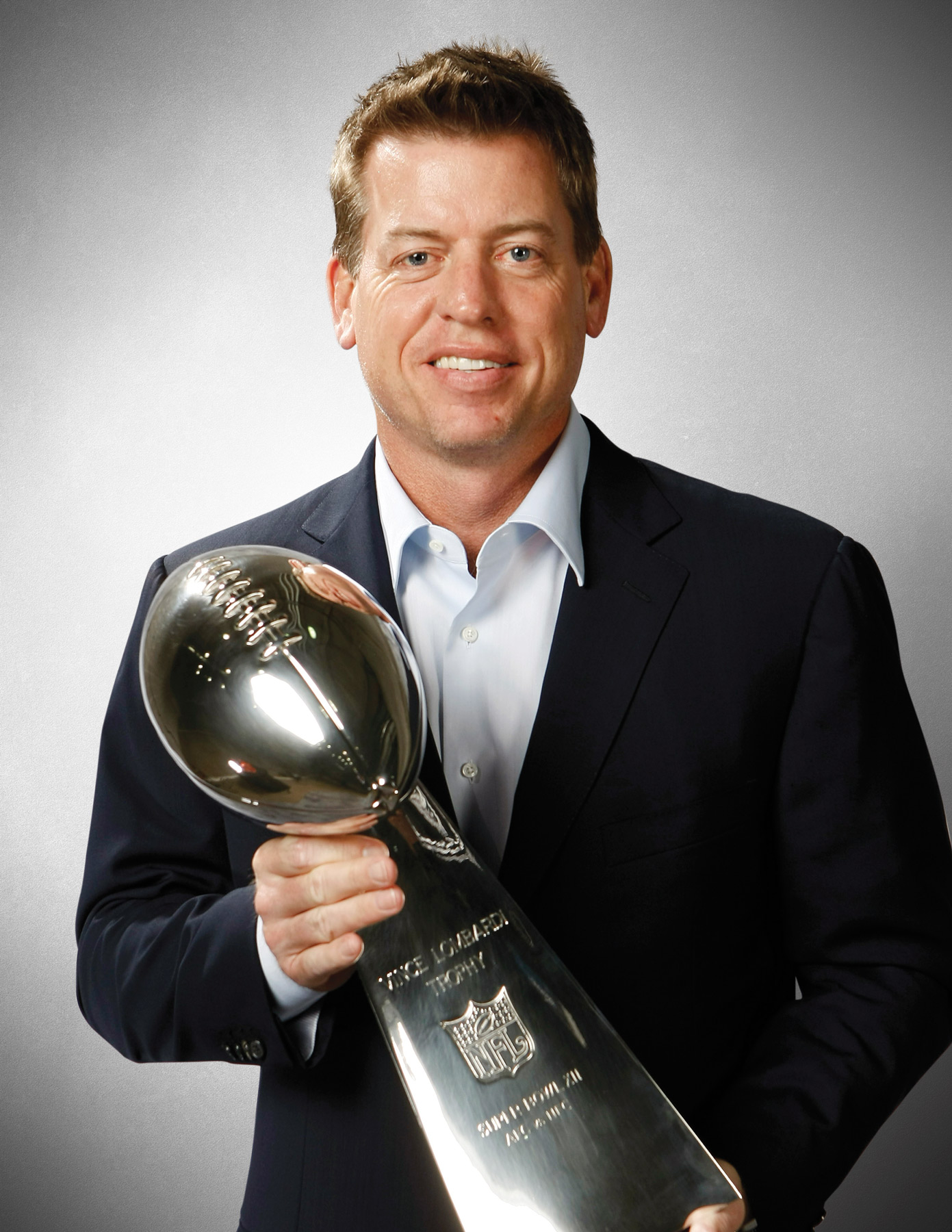
I’m asked what I remember most about my career, and there was a moment in that game when I was running across the field, and I had my finger up in the air [after a touchdown pass]—it’s the only time in my career I ever did that because I truly knew we were No. 1. But when we knew we had clinched the game [52-17], and to see all the smiles and celebrations that were taking place on the sidelines, and to think four years earlier we were the worst team in football and being laughed at and then being on top of the world as world champions, is a feeling I’ll never forget.
I think it’s opened up a lot of doors. Never really thought about it in that perspective. You finish it and you think it’s passed, but you really carry it with you.
Charles Haley
(San Francisco 49ers/Dallas Cowboys, Super Bowls XXIII, XXIV, XXVII, XXVIII, XXX)
After I won four Super Bowls, I had the same goal Ronnie Lott had, and we always had this thing, I’d tell him I was going to beat him [for most Super Bowl rings in the NFL], and whoever got five rings first was supposed to hit the other guy on the head with it. So when I got my fifth ring [most by any player in NFL history], I went to California, and I took all five rings with me and plunked him upside the head with them. He had filled me up with the love and passion for the game.
When I got to the Cowboys, we had all that talent, but every year we would lose like five or six players. So by the time [Barry] Switzer came [in 1994] we had lost a lot of great players. So it had to take rededicating yourself to football. You had to have the hunger. You had to have the passion [to keep winning Super Bowls], and those things Coach Switzer brought back to the organization. So I just wanted to play for the guy; I gave it up. I came back two weeks after major back surgery to play [in Super Bowl XXX] because you know what? I loved that man that much because he was a great inspiration to me.
Russell Maryland
(Dallas Cowboys, Super Bowls XXVII, XXVIII, XXX)

One recollection of the Super Bowls is really the Leon Lett play in the first Super Bowl [XXVII], and it’s funny because Leon’s been on my mind a lot lately. That particular play in that game [fumble at the goal line], we were already ahead, we were having a good time, and to see Leon make that big blooper on national TV, you know, even though it was bad for Leon at the time, we were up so much, we didn’t have time to lament, we still were going to win the game—but Leon is a great guy, but to see that happen to him we just threw a lot of jokes his way afterwards. So funny, that’s the first memory. But probably one of the better memories was being able to be with my family, bring them to the game. It was great to have them surrounding me on my first Super Bowl trip. Of all the Super Bowls that we played in, that one was the most special because it was the first one, and we won it in great fashion.
Being in that Super Bowl showed me I could be the best in something. Even though I had been the No. 1 pick [1991 NFL Draft], that didn’t mean I was the best player in the draft. Even playing on a successful college football team [University of Miami], that’s great, but still it’s nothing like being the best in anything professional.
Nate Newton
(Dallas Cowboys, Super Bowls XXVII, XXVIII, XXX)
What sticks out in my mind is the first Super Bowl when Jay Novacek caught a touchdown pass, and we were down on the 5- or 10-yard line. I remember when Jay caught that pass, I remember [Buffalo’s] Bruce Smith almost hitting Troy Aikman’s arm because he got off on the snap count so great that I was scared to death, and I barely caught him on his hip and pushed him away, by inches. And when I heard the crowd cheer, I was so happy because if he would have hit Troy right there, I don’t know what would have happened in that game. We always seem to remember the bad things or the almost-bad things. Scares you to death.
Michael Irvin
(Dallas Cowboys, Super Bowls XXVII, XXVIII, XXX)
The third Super Bowl [XXX] was great, but it was tough. We had also lost Coach [Jimmy] Johnson, and inside the locker room we wanted to prove that we could still go out there. We enjoyed playing together, and we were a family. We wanted to go out and prove we could still win a Super Bowl. We loved Coach Johnson but now Coach [Barry] Switzer was the coach, and you know whenever you make a change like that, difficult times come with it. But we weathered the storm, and we did win a Super Bowl [27-17 over Pittsburgh]. But I think those tough times are what made our teams so fun to play on. I can remember before we won Super Bowl XXVII we would have team meetings trying to understand why we are getting our heads kicked in the way we are getting our heads kicked in. Then after the team meeting we go ahead and get our heads kicked in. There was nothing we could do about it. But having those tough times, and then sitting in that locker room after Super Bowl XXX, winning three Super Bowls in four years, and looking around, that was the first time I really reminisced on the history we were creating. I thought, wow, can you believe that? We have won three Super Bowls in four years, and you go back to, wow, after getting our heads kicked in like that … So it was a beautiful thing to accomplish, and it’s going to be a beautiful thing to share with the people in Texas. And I’ll say it again: I can’t wait for the Super Bowl to be here next year.
Daryl Johnston
(Dallas Cowboys, Super Bowls XXVII, XXVIII, XXX)
It’s the culmination of what you do for an occupation. It’s a childhood dream. It’s reaching the pinnacle in your business. So from a number of different perspectives, you have an opportunity if you can win that game when you are trying to figure out who’s the best, it was always something that I felt very proud about. The biggest thing, though, is as growing up as a little boy, watching the Super Bowl with my dad, and then to imagine that you are involved in that game and that out there in the country there are some little boys watching it with their dads kind of the same way you did. Kind of wondering who it is many years down the road that will have the opportunity to fulfill a childhood dream.
The first Super Bowl [XXVII], you know Buffalo had been there twice so this was their third time, and we’re still young, people were still wondering how did we beat San Francisco [30-20 in the 1992 NFC Championship] because San Francisco was supposed to be the top team. And when we got on the field [at the Rose Bowl] we were a little bit nervous—our sideline had a little bit of nervous energy. You’re looking across the field at the Buffalo Bills. and they are very calm, it’s nothing new to them—“Hey this is our third go-around”—and the fly-by with the jets that came over the stadium just absolutely electrified our sideline, and you were absolutely blown away by that.
[Winning the Super Bowl] opens a lot of opportunities, especially when you are a three-time Super Bowl champion. I don’t know if I would be working in the [TV broadcasting] industry I am now if I was just a fullback. But being a three-time Super Bowl championship fullback adds quite a bit of credibility to your résumé.
Roger Staubach
(Dallas Cowboys, Super Bowls VI, X, XII, XIII)

The first one [Super Bowl VI], well we had lost the year before [V], and I got a chance to start the second one, and it was that team like, we were “Next Year’s Champions,” and all that stuff was coming out. So I think the biggest thing was winning that game and taking the pressure off of Coach [Tom] Landry. I used to always kid around about when Walt Garrison said, when asked if he had ever seen Coach Landry smile, “No, but I was only there nine years.” And Walt was carrying him off the field, if you ever see the picture of Tom being carried off the field with that big smile on his face, I think that was the most important victory he’s ever had. Because it just really showed, he’s a winning coach, but now you’re graded on winning a Super Bowl, even back then. And being in the locker room with actually Don Meredith’s team and me being the quarterback … just to see [Bob] Lilly and [Mel] Renfro, for me, and being the first season I really started, to win the Super Bowl was, I mean I still remember everything about that locker room. I can still see Duane Thomas up there being interviewed. I always remember it was a great moment being an athlete to win a Super Bowl.
I think just being a Dallas Cowboy has had a big effect on my life. We had a winning tradition, a city that was good to me. In the off-season I was working in real estate, and then the rest of my life, and the Cowboys were instrumental to me both on and off the field.
“Mean” Joe Greene
(Pittsburgh Steelers, Super Bowls IX, X, XIII, XIV)
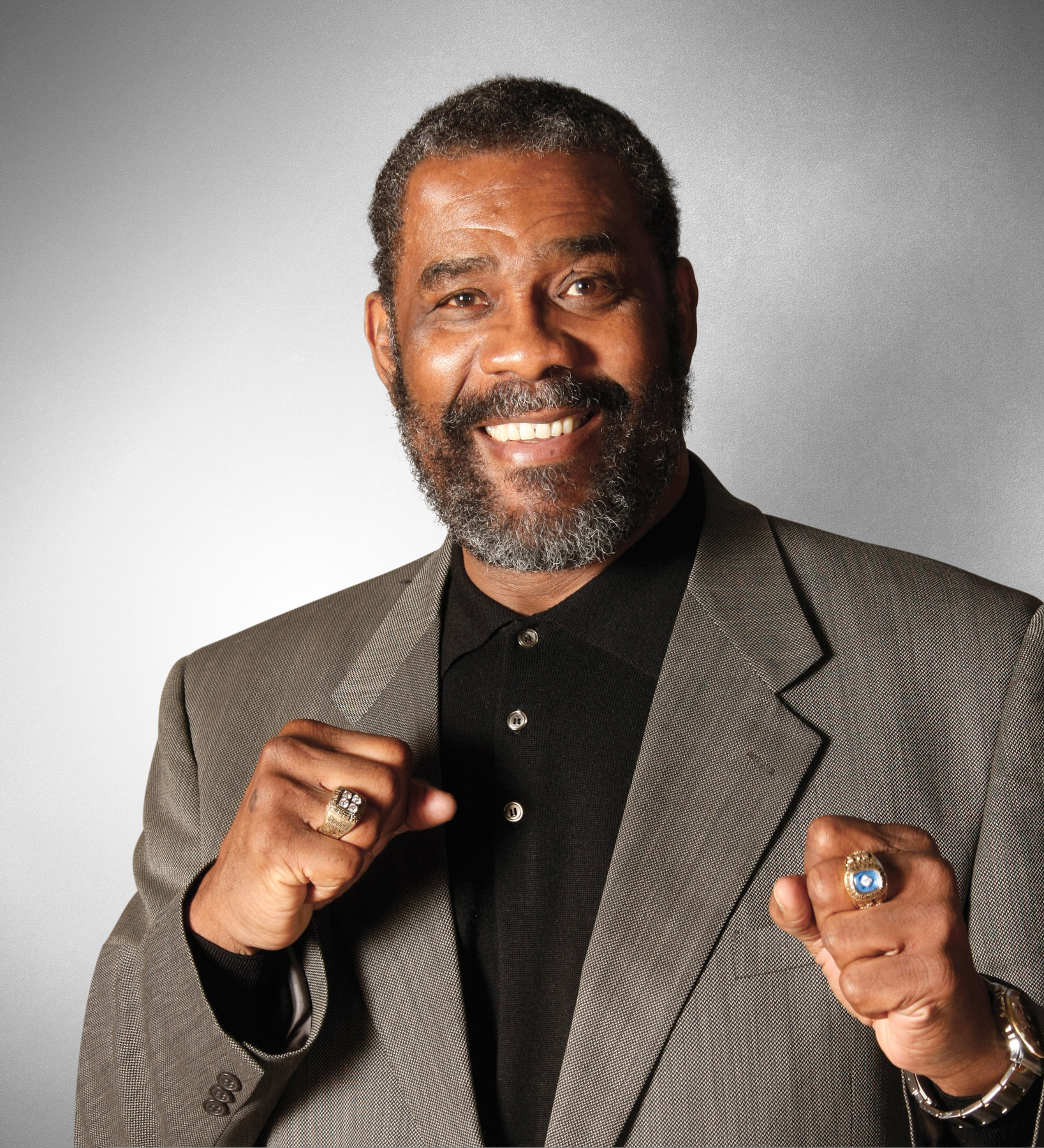
After [winning four Super Bowls], when I walked around, I walked around very proud. We can’t go back, obviously, but that is something that is part of my life, and the people I experienced that with, they’ve been a part of it. No amounts of money and fame can take away that joy. So that’s something I feel all the time.
Craig James
(New England Patriots, Super Bowl XX)
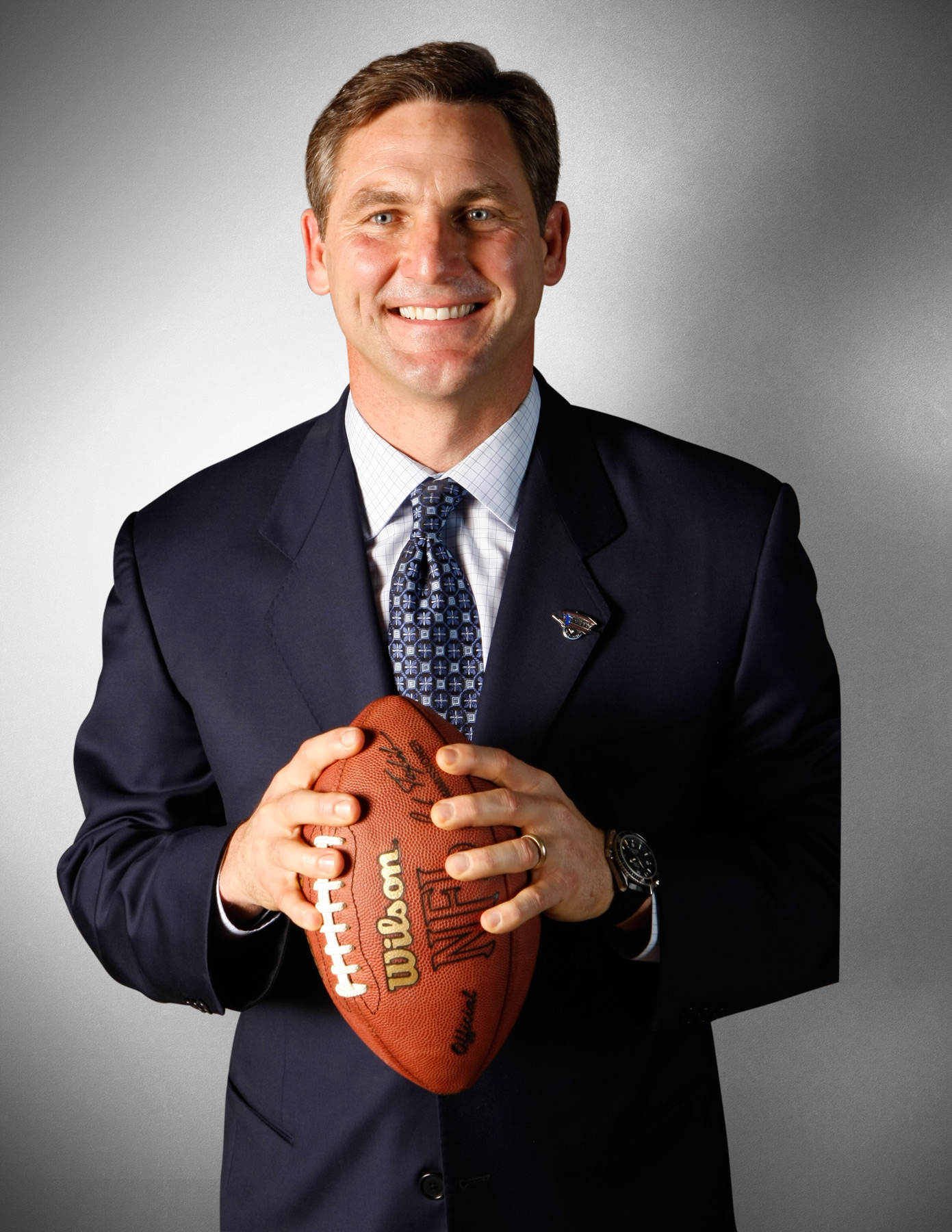
There were a lot of great players, far greater than me who never got a chance to play in the Super Bowl, so I always reminded myself how fortunate I was to have been in the NFL and to have played in the Super Bowl. And, you know, some people say, hey, I think it’s cool to have on a résumé to say, hey that guy played in a Super Bowl, and the older you get people say, hey that guy must have played on a pretty good team and he must have been a pretty good player.


